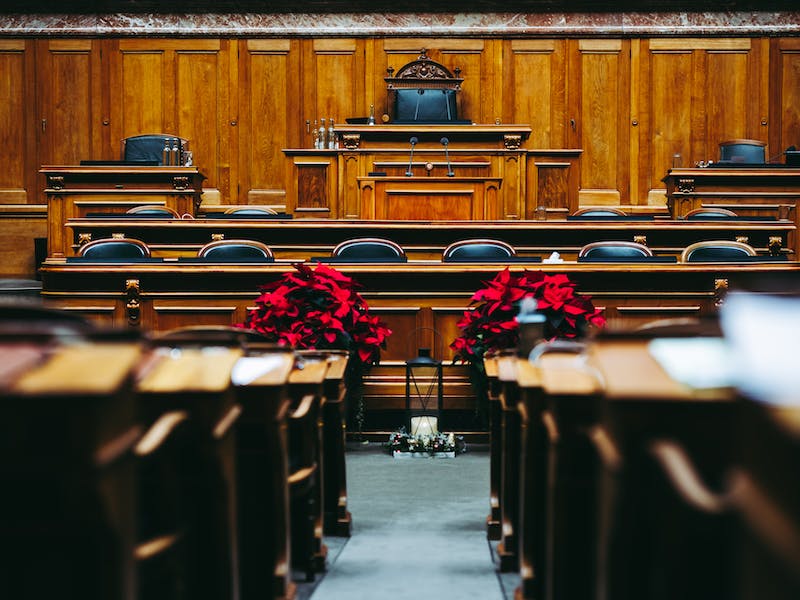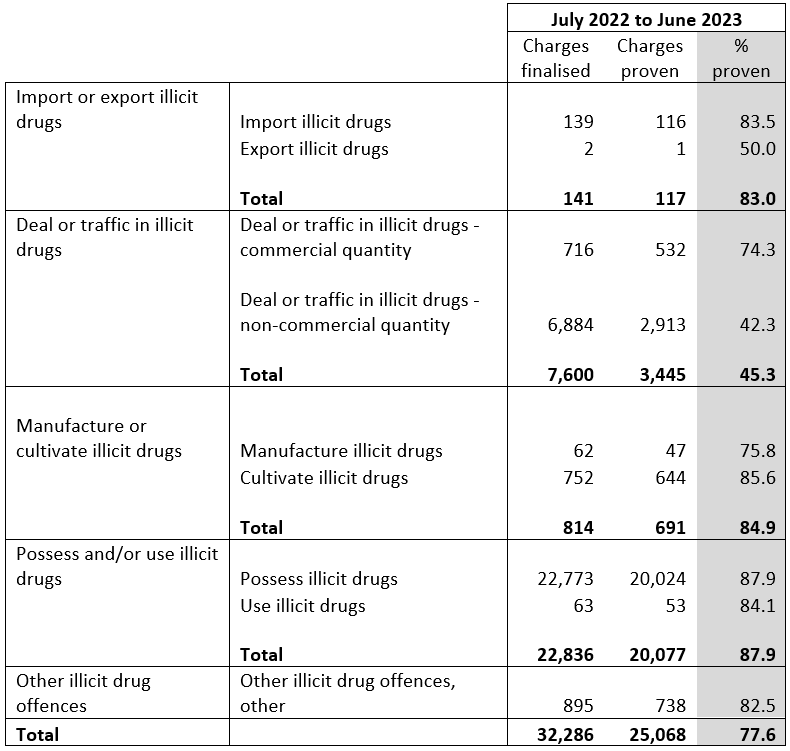
In NSW, illicit drug offences are contained in Drug Misuse and Trafficking Act 1985. Drug offences in NSW falls into three main categories which are:
- Deal or traffic in illicit drugs,
- Manufacture or cultivate illicit drugs, and
- Possess and/or use illicit drugs.
There is a further category of illicit drug offences contained in the Criminal Code 1995 (Cth)which relates to import or export of illicit drugs.
This post will concentrate on illicit drug offences under the NSW legislation and the critical aspects of the essential role played by Blacktown criminal lawyers | AMA Legal in drug offence cases.
Statistics
NSW Bureau of Crime Statistics and Research provides the following statistics regarding illicit drug offences in NSW:

Based on the provided statistics, it is clear that illicit drug offences are a significant issue in NSW, constituting approximately 20% of all cases brought before the NSW Courts by the prosecuting authorities.
The role of a criminal lawyers in illicit drug offence cases
Facing illicit drug offences can be a daunting experience, and individuals navigating the legal system may find themselves overwhelmed. In such circumstances, the role of criminal lawyers becomes pivotal, providing legal advice, acting as advocates, and defending their client’s rights.
Understanding your rights
Individuals accused of illicit drug offences should consider seeking the assistance of criminal lawyers for advice and guidance on their rights. The legal system provides rights designed to ensure a fair and just legal process for everyone. Criminal lawyers can advise on your rights and play a vital role in protecting them throughout legal process.
Navigating legal complexities
Cases involving illicit drug offences can be complex, demanding a specialized understanding of the law. Criminal lawyers possess the expertise necessary to navigate the various legislations, regulations, and precedents that influence the outcomes of legal proceedings related to such offences.
The complexities of these cases vary based on:
- Offences as charged on the indictment,
- The type of alleged illicit drugs,
- The quantity of alleged illicit drugs,
- The alleged role of the accused in the offences,
- How the evidence was gathered by the prosecution.
Knowledge of the above plays a significant role on any illicit drug offence case and any defences available to the accused.
Defence
One of the responsibilities of criminal lawyers is to present a strong defence, a task especially crucial in illicit drug offence cases where evidence holds significant weight. Criminal lawyers meticulously examine the circumstances surrounding the arrest, evidence collection, and the conduct of law enforcement officials, ensuring adherence to all legal safeguards.
Through such an examination of the evidence, criminal lawyers can identify potential weaknesses in the prosecution’s evidence. This may involve questioning the legality of searches or arrest and challenging the reliability of forensic evidence.
Possession beyond a reasonable doubt
The prosecution must prove beyond a reasonable doubt that accused had possession of the illicit drug. At law possession needs proof beyond a reasonable doubt that the accused intentionally had the illicit drug in their physical custody or control to the exclusion of any other person unless joint possession is alleged.
Presenting evidence to highlight that multiple individuals had access to the location where the illicit drugs were found may suggest that the prosecution have not proven beyond reasonable doubt that the accuses possessed the illicit drugs.
Personal use
Possession of drugs in quantity not less than traffickable quantity is deemed to be for supply pursuant to section 29 Drug Misuse and Trafficking Act 1985. Under the section, once possession of not less than a traffickable amount of a drug is proved beyond reasonable doubt, the accused has the onus of proving on the balance of probabilities that he or she had the drug otherwise than for supply which may involve presenting evidence to establish that the quantity in possession was consistent with another purpose such as personal use and not supply.
Negotiating with prosecution
While a strong review and assessment of the prosecution evidence is crucial, criminal lawyers are also adept at negotiation – a skill often applied to secure a more favourable outcome for their clients. In illicit drug offence cases, negotiations with prosecutors can lead to withdrawal of charges, rolling up of charges, pleas to alternate or lesser charges which may impact any sentence outcomes.
Criminal lawyers use their knowledge of the law, the strengths, and weaknesses of the prosecution evidence, to engage in meaningful negotiations.
Conclusion
In illicit drug offence cases within the legal system, criminal lawyers play an indispensable role in ensuring a fair and just legal process for their clients. Their expertise extends beyond the courtroom, encompassing the protection of legal rights, presenting a robust defence case, negotiation skills, and a commitment to advocacy for their clients. As individuals face the challenges posed by illicit drug offences, the assistance of a Blacktown Criminal lawyer | AMA Legal becomes a crucial factor in navigating the complexities of the legal system.

